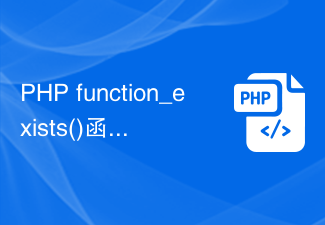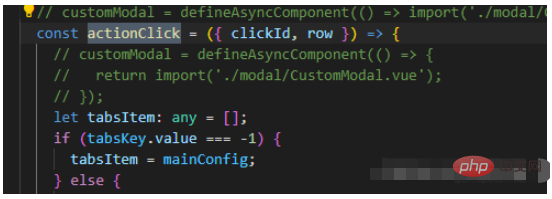 Web Front-end
Web Front-end JS Tutorial
JS Tutorial Detailed explanation of the difference between Component and PureComponent
Detailed explanation of the difference between Component and PureComponentThis time I will bring you a detailed explanation of the difference between the use of Component and PureComponent. What are the precautions when using Component and PureComponent? The following is a practical case, let's take a look.
I started switching to using PureCompoent because it was a more performant version of Component. While this turns out to be true, this increase in performance comes with a few caveats. Let’s dig deeper into PureComponent and understand why we should use it.
There is one difference between Component and PureComponent
In addition to providing you with a shouldComponentUpdate method with a shallow comparison, PureComponent and Component Basically identical. When props or state changes, PureComponent will perform a shallow comparison between props and state. On the other hand, Component does not compare the props and state of the current and next states. Therefore, the component will be re-rendered by default whenever shouldComponentUpdate is called.
Shallow Comparison 101
When comparing the previous and next props and state, the shallow comparison will check whether the original values have the same Value (for example: 1 == 1 or ture==true), whether the array and object reference are the same.
Never change
You may have heard, don't change objects and arrays in props and state if you Changing objects in the parent component, your "pure" child component will not update. Although the value has been changed, the subcomponent compares whether the previous props reference is the same, and no in-depth comparison is performed.
In contrast, you can return a new object by using the es6 assign method or the array extension operator or using a third-party library to achieve immutability.
Is there any performance issue?
Comparing primitive values and object references is a low-cost operation. If you have a list of child objects and one of them updates, it's much faster to check their props and state than to re-render each child node
OthersSolutions
Don’t bind values in the render function
Suppose you have a list of items, and each item passes a unique parameter to the parent method. To bind parameters, you might do this:
<commentitem> this.likeComment(user.id)} /></commentitem>
This problem will cause a new function to be created every time the parent component render method is called, passing it in likeComment. This will have the side effect of changing the props of each child component, which will cause them all to re-render, even if the data itself has not changed.
To solve this problem, just pass the reference of the parent component's prototype method to the child component. The child component's likeComment property will always have the same reference, so there won't be unnecessary re-renders.
<commentitem></commentitem>
Then create a class method in the child component that references the incoming properties:
class CommentItem extends PureComponent {
...
handleLike() {
this.props.likeComment(this.props.userID)
}
...
}
Do not derive data in the render method
Consider how your configuration component will Display the user's ten favorite articles from a series of articles.
render() {
const { posts } = this.props
const topTen = posts.sort((a, b) => b.likes - a.likes).slice(0, 9)
return //...
}
There will be a new reference to topTen every time the component re-renders, even if posts has not changed and the derived data is the same. This will cause unnecessary re-rendering of the list.
You can solve this problem by caching your derived data. For example, set derived data in your component's state so that it only updates when posts update.
componentWillMount() {
this.setTopTenPosts(this.props.posts)
}
componentWillReceiveProps(nextProps) {
if (this.props.posts !== nextProps.posts) {
this.setTopTenPosts(nextProps)
}
}
setTopTenPosts(posts) {
this.setState({
topTen: posts.sort((a, b) => b.likes - a.likes).slice(0, 9)
})
}
If you are using Redux, consider using reselect to create "selectors" to combine and cache derived data.
I believe you have mastered the method after reading the case in this article. For more exciting information, please pay attention to other related articles on the php Chinese website!
Recommended reading:
Detailed explanation of the use of life cycle in React
Detailed explanation of the use of component communication in React
The above is the detailed content of Detailed explanation of the difference between Component and PureComponent. For more information, please follow other related articles on the PHP Chinese website!
 Vue.nextTick函数用法详解及在异步更新中的应用Jul 26, 2023 am 08:57 AM
Vue.nextTick函数用法详解及在异步更新中的应用Jul 26, 2023 am 08:57 AMVue.nextTick函数用法详解及在异步更新中的应用在Vue开发中,经常会遇到需要进行异步更新数据的情况,比如在修改DOM后需要立即更新数据或者在数据更新后需要立即进行相关操作。而Vue提供的.nextTick函数就是为了解决这类问题而出现的。本文就会详细介绍Vue.nextTick函数的用法,并结合代码示例来说明它在异步更新中的应用。一、Vue.nex
 Django框架中的缓存机制详解Jun 18, 2023 pm 01:14 PM
Django框架中的缓存机制详解Jun 18, 2023 pm 01:14 PM在Web应用程序中,缓存通常是用来优化性能的重要手段。Django作为一款著名的Web框架,自然也提供了完善的缓存机制来帮助开发者进一步提高应用程序的性能。本文将对Django框架中的缓存机制进行详解,包括缓存的使用场景、建议的缓存策略、缓存的实现方式和使用方法等方面。希望对Django开发者或对缓存机制感兴趣的读者有所帮助。一、缓存的使用场景缓存的使用场景
 php-fpm调优方法详解Jul 08, 2023 pm 04:31 PM
php-fpm调优方法详解Jul 08, 2023 pm 04:31 PMPHP-FPM是一种常用的PHP进程管理器,用于提供更好的PHP性能和稳定性。然而,在高负载环境下,PHP-FPM的默认配置可能无法满足需求,因此我们需要对其进行调优。本文将详细介绍PHP-FPM的调优方法,并给出一些代码示例。一、增加进程数默认情况下,PHP-FPM只启动少量的进程来处理请求。在高负载环境下,我们可以通过增加进程数来提高PHP-FPM的并发
 PHP function_exists()函数用法详解Jun 27, 2023 am 10:32 AM
PHP function_exists()函数用法详解Jun 27, 2023 am 10:32 AM在PHP开发中,有时我们需要判断某个函数是否可用,这时我们便可以使用function_exists()函数。本文将详细介绍function_exists()函数的用法。一、什么是function_exists()函数?function_exists()函数是PHP自带的一个内置函数,用于判断某个函数是否被定义。该函数返回一个布尔值,如果函数存在返回True,
 vue3怎么使用defineAsyncComponent与component标签实现动态渲染组件May 12, 2023 pm 05:55 PM
vue3怎么使用defineAsyncComponent与component标签实现动态渲染组件May 12, 2023 pm 05:55 PM一、基础的动态引入组件:简单的动态引入的意思是,前端知道要引入哪些组件,将多个组件引入到父组件中,但不渲染它,满足一定条件后,才去在某个位置渲染指定的组件。import{reactive,ref,shallowReactive,onActivated,defineAsyncComponent,}from'vue';constcustomModal=defineAsyncComponent(()=>import('./modal/CustomM
 面试官:@Configuration 和 @Component 的区别Aug 15, 2023 pm 04:29 PM
面试官:@Configuration 和 @Component 的区别Aug 15, 2023 pm 04:29 PM调用@Configuration类中的@Bean注解的方法,返回的是同一个示例;而调用@Component类中的@Bean注解的方法,返回的是一个新的实例。
 Gin框架的模板渲染功能详解Jun 22, 2023 pm 10:37 PM
Gin框架的模板渲染功能详解Jun 22, 2023 pm 10:37 PMGin框架是目前非常流行的Go语言Web框架之一。作为一个轻量级的框架,Gin提供了丰富的功能和灵活的架构,使得它在Web开发领域中备受欢迎。其中一个特别重要的功能是模板渲染。在本文中,我们将介绍Gin框架的模板渲染功能,并深入了解它的实现原理。一、Gin框架的模板渲染功能Gin框架使用了多种模板渲染引擎来构建Web应用程序。目前,它支持以下几种模板引擎:
 PHP strpos()函数用法详解Jun 27, 2023 am 10:43 AM
PHP strpos()函数用法详解Jun 27, 2023 am 10:43 AMPHPstrpos()函数用法详解在PHP编程中,字符串处理是非常重要的一部分。PHP通过提供一些内置函数来实现字符串处理。其中,strpos()函数就是PHP中最常用的一个字符串函数之一。该函数的目的是在一个指定的字符串中搜索另一个指定字符串的位置,如果包含则返回这个位置,否则返回false。本文将通过详细分析PHPstrpos()函数的用法,助你更好


Hot AI Tools

Undresser.AI Undress
AI-powered app for creating realistic nude photos

AI Clothes Remover
Online AI tool for removing clothes from photos.

Undress AI Tool
Undress images for free

Clothoff.io
AI clothes remover

AI Hentai Generator
Generate AI Hentai for free.

Hot Article

Hot Tools

WebStorm Mac version
Useful JavaScript development tools

DVWA
Damn Vulnerable Web App (DVWA) is a PHP/MySQL web application that is very vulnerable. Its main goals are to be an aid for security professionals to test their skills and tools in a legal environment, to help web developers better understand the process of securing web applications, and to help teachers/students teach/learn in a classroom environment Web application security. The goal of DVWA is to practice some of the most common web vulnerabilities through a simple and straightforward interface, with varying degrees of difficulty. Please note that this software

Zend Studio 13.0.1
Powerful PHP integrated development environment

Dreamweaver Mac version
Visual web development tools

Notepad++7.3.1
Easy-to-use and free code editor






